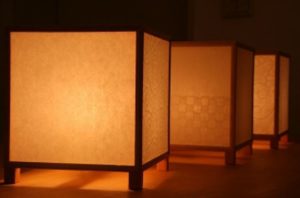Discrimination against Koreans in Japan
CONTENTS
Zainichi Sabetsu: Discrimination against Koreans in Japan
By Ryoji Shimada
There is discrimination in every country. Even in Japan, which is so safe that women can walk alone at night, there is discrimination. Discrimination against women is a major problem in Japan, especially among developed countries. There are many other forms of discrimination, and discrimination against Koreans living in Japan is one of them. In this article, I would like to focus on this issue.
There are about 2.9 million foreigners living in Japan as of 2020, of which about 435,000 are Koreans. Before World War II, the number was over 2 million. This is because many Koreans (Kankoku-jin and Chhosen-jin) were working in Japan during Japan’s annexation of the Korean Peninsula. So practically speaking they moved inside the same country to work in the land of Japan and remained there after the World War ll. However the number of Koreans in Japan has decreased due to their return to their home countries or naturalization, but they still account for one fifth of all foreigners living in Japan.
Changing their name to avoid discrimination
Koreans and Japanese look almost the same. I am often told by Koreans that I look like a Korean, but there are Koreans who look like Japanese, and vice versa. In other words, it is hard to distinguish between them by their appearance. However, if we look at their names, we can tell. "Kim, Park, Han…" These surnames are unique to Korea. But if they become a naturalized citizen, they can change their name. If they do this, their name will become the same as Japanese, and they will be less likely to be discriminated against. However, many Korean residents in Japan choose not to naturalize because they want to preserve their roots and ethnic background. Instead they have obtained permanent residency.
They are called "Zainichi Kankoku-jin" who chose to change their nationality to South Korea after the independence of the country in 1948 or "Zainichi Chosen-jin" who chose to keep the original status. Majority of them are "Zainichi Kankoku-jin," but together they are often called, "Zainichi Korean" or simply "Zainichi."
Types of discrimination
Now, what kind of discrimination is there against Koreans living in Japan? It can take many forms. But it is often referred to as discrimination in "employment" and "marriage." I'm sure many of you have read "Pachinko", a book that became a very popular in the United States. In this book, various kinds of discrimination were mentioned. In reality, there is a huge and leading company in the pachinko industry called Maruhan, which has sales of over one trillion yen or 10 billion US dollars as of 2021. The founder of the company is a Korean living in Japan called "Han," and his motivation for founding the company was that he could not find a job anywhere after the graduation of Hosei University in Tokyo. In other words, he had no choice but to start his own business in order to make a living.
Also, for the marriage discrimination, I have my own personal story. I have a Japanese female friend who got married to a Korean living in Japan. I was invited to her wedding, but most of her relatives didn't come. In fact, before the wedding, she asked me for advice. She told me that her relatives were opposed to her marrying a Korean because it would stigmatize their family lineage. Since I have many Korean friends, I was surprised to hear that. So I advised her not to worry about it. "It was such an outdated thinking," I said. But she was even told by her relatives that they would cut off relationship entirely if she ever got married with the Korean." In the end, she decided to go ahead marrying him. I attended her wedding, but I noticed that there were very few relatives from her family.
Misinformation about the areas of Koreans neighborhood

There are also rumors that the places where they live are dangerous, like a slum in a big city. For example, there are many Koreans living in the south side of Kyoto station and Tsuruhashi district in Osaka. I don't know how it used to be like. However, when I talked to a Japanese coworker who currently lives in the area of Kyoto, he said, "It's not dangerous at all." Also the company I used to work for was located on the south side of Kyoto Station as well, but I never felt unsafe there. Also, Tsuruhashi in Osaka has the largest Korean town in Japan. I like the place a lot. There are many Korean restaurants and shops. It is like a real Korean town. So I have been there many times, but instead of feeling dangerous, there are many warm and friendly people. And the service is good, plus it's cheap! Why are these misconceptions created? People who believe in this kind of misinformation have never actually come into contact with Koreans or visited Korean neighborhoods, and they can't get rid of their bad stereotypical image, I think.
Interacting with one another is a key

I have foreign friends, but probably Koreans are the most. I have been to South Korea more than ten times. Of those I've visited there three times to attend my friend's weddings. Not only are they close to Japanese in their way of thinking, such as Confucianism and the importance of hierarchy, but they are also very humane and personable. If someone did something for them, they always try to return the favor. If you get to know them directly as a human being, you will surely be able to get rid of their stereotypical bad image.
As many psychologists say, "Misunderstandings will be erased when people personally interact with each other." In the movie "Green Book" which won the Academy Award for Best Picture, the white protagonist who hated black people so much changed his mind after he actually interacted with black people and experience their life.
Masayoshi Son, the president of Softbank Group, one of Japan's leading companies, was once a Korean living in Japan. His company is well known in the US for owning WeWork and investing Uber, and Sprint Corporation. Although he is now a naturalized Japanese citizen, he still uses his Korean-derived name, Son. He says it is because he wants to preserve his identity. He is the richest person in Japan now with an asset of more than 44 billion US dollars. It is true that there are some Japanese who do not think well of him because his roots are in Korea even though he is Japanese. It is true that some Japanese people do not think well of naturalized Koreans living in Japan.
I personally hope that now is the time for Japanese and Koreans to open their hearts to each other and try to understand each other. I believe that such in-person exchange like in the movie, "Green Book" will be the first step in eliminating discrimination and misconception. What do you think? Let me hear your opinion.


